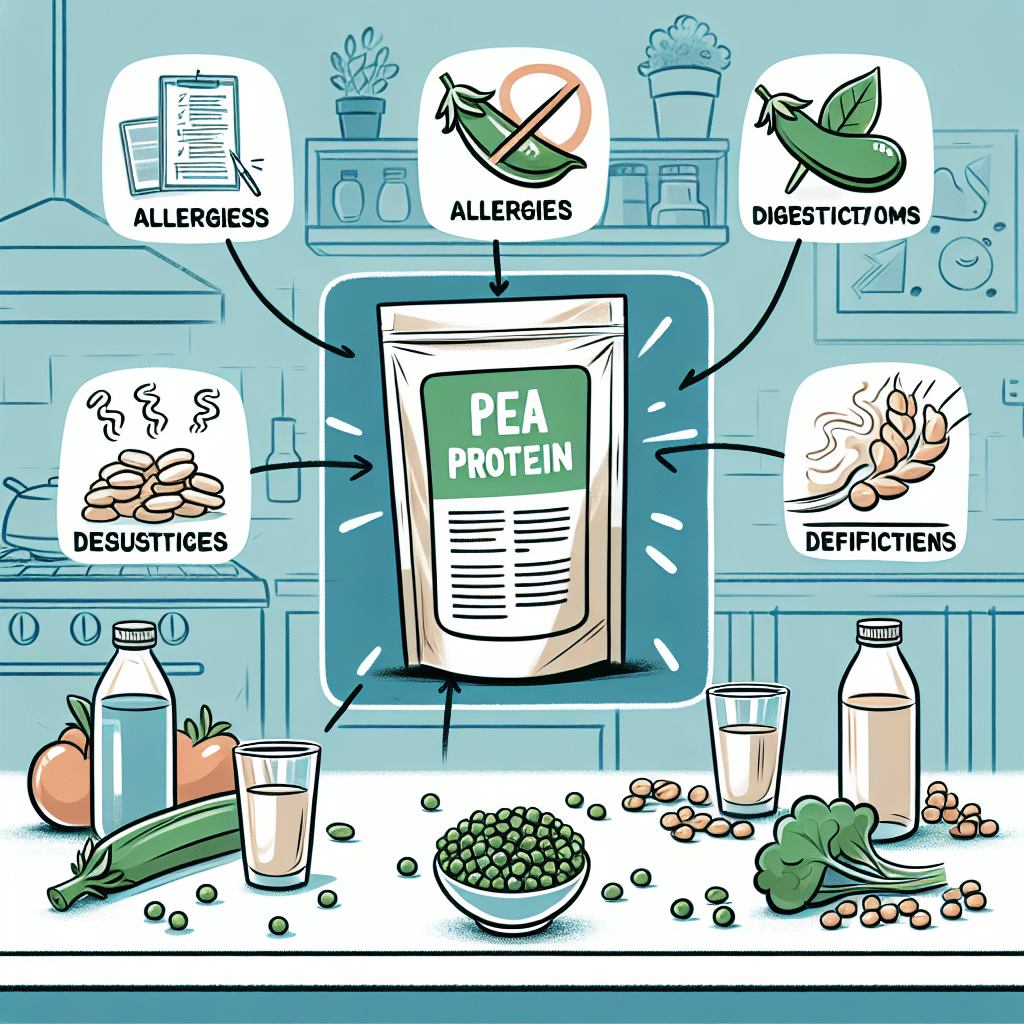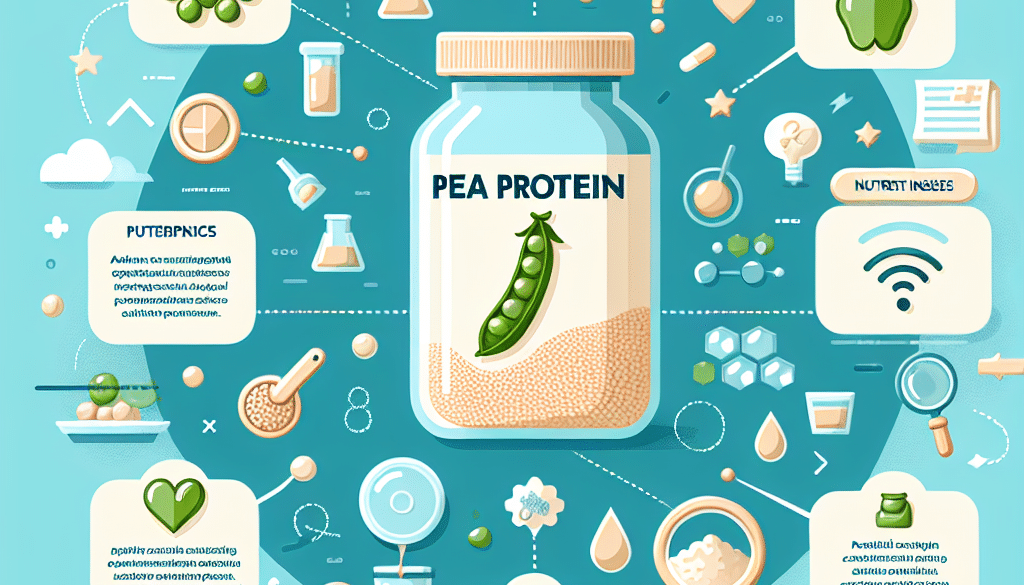What Are The Concerns With Pea Protein?
-
Table of Contents
- Pea Protein: Understanding the Concerns and Considerations
- Understanding Pea Protein
- Potential Allergenicity
- Anti-Nutritional Factors
- Environmental Concerns
- Quality and Purity
- Complete Protein Debate
- Impact on Digestion
- Case Studies and Statistics
- Conclusion: Balancing Benefits and Concerns
- Discover ETprotein’s High-Quality Pea Protein Products
Pea Protein: Understanding the Concerns and Considerations

Pea protein has emerged as a popular plant-based alternative to animal-derived proteins, particularly among vegetarians, vegans, and individuals with dietary restrictions. As the demand for sustainable and allergen-free protein sources grows, pea protein offers a viable solution. However, as with any food product, there are concerns and considerations that consumers and manufacturers should be aware of. This article delves into the potential issues associated with pea protein, supported by research, examples, and statistics.
Understanding Pea Protein
Pea protein is derived from yellow split peas and is a high-quality protein that contains all nine essential amino acids. It is commonly used in protein powders, meat substitutes, and a variety of health food products. Its rise in popularity can be attributed to its nutritional benefits, including being a rich source of iron and being free from dairy, gluten, and soy.
Potential Allergenicity
While pea protein is often marketed as hypoallergenic, there have been instances of allergic reactions. Although rare, pea allergies do exist and can cause symptoms ranging from mild to severe. Individuals with known legume allergies, particularly to peanuts, should be cautious when consuming pea protein and consult with a healthcare provider.
Anti-Nutritional Factors
Peas, like other legumes, contain anti-nutritional factors such as lectins and phytates. These substances can interfere with the absorption of minerals and may cause digestive issues. However, the processing methods used to extract pea protein often reduce these compounds to negligible levels, minimizing their impact on nutrition and health.
Environmental Concerns
Although pea protein is considered more sustainable than animal-based proteins, its production is not without environmental impact. The cultivation of peas requires land, water, and other resources. Additionally, the processing of peas into protein powder involves energy consumption and waste generation. It is essential to consider the entire lifecycle of pea protein products when evaluating their environmental footprint.
Quality and Purity
The quality and purity of pea protein can vary significantly between manufacturers. Contaminants such as heavy metals, pesticides, and solvent residues may be present in lower-quality products. Consumers should look for third-party certifications and lab testing results to ensure they are purchasing a clean and safe product.
Complete Protein Debate
While pea protein contains all nine essential amino acids, there is debate over its status as a complete protein. The bioavailability and ratios of these amino acids may not match those of animal proteins, potentially affecting its effectiveness for muscle synthesis and repair. Blending pea protein with other plant-based proteins can create a more balanced amino acid profile.
Impact on Digestion
Some individuals may experience digestive discomfort, such as bloating or gas, when consuming pea protein. This can be due to the fiber content in pea protein or individual sensitivities. Starting with small servings and gradually increasing intake can help mitigate these effects.
Case Studies and Statistics
Research on pea protein is ongoing, but current studies suggest that it is a promising alternative to traditional protein sources. For example, a study published in the Journal of the International Society of Sports Nutrition found that pea protein promoted muscle thickness gains just as effectively as whey protein in a sample of male participants.
Conclusion: Balancing Benefits and Concerns
Pea protein offers numerous benefits, including being a sustainable, plant-based protein source with a low allergenic potential. However, concerns such as allergenicity, anti-nutritional factors, environmental impact, quality, and digestive issues should be considered. By addressing these concerns and choosing high-quality pea protein products, consumers can enjoy the benefits while minimizing potential drawbacks.
Discover ETprotein’s High-Quality Pea Protein Products
If you’re looking for a reliable source of high-quality pea protein, ETprotein offers a range of products that meet the highest standards. Their pea protein is characterized by a neutral taste, non-GMO, and allergen-free attributes, ensuring that you receive a pure and effective product. Whether you’re a manufacturer or a consumer, ETprotein’s offerings can cater to your specific needs.
About ETprotein:
ETprotein, a reputable protein and L-(+)-Ergothioneine (EGT) Chinese factory manufacturer and supplier, is renowned for producing, stocking, exporting, and delivering the highest quality organic bulk vegan proteins and L-(+)-Ergothioneine. They include Organic rice protein, clear rice protein, pea protein, clear pea protein, watermelon seed protein, pumpkin seed protein, sunflower seed protein, mung bean protein, peanut protein, and L-(+)-Ergothioneine EGT Pharmaceutical grade, L-(+)-Ergothioneine EGT food grade, L-(+)-Ergothioneine EGT cosmetic grade, L-(+)-Ergothioneine EGT reference grade and L-(+)-Ergothioneine EGT standard. Their offerings, characterized by a neutral taste, non-GMO, allergen-free attributes, with L-(+)-Ergothioneine purity over 98%, 99%, cater to a diverse range of industries. They serve nutraceutical, pharmaceutical, cosmeceutical, veterinary, as well as food and beverage finished product distributors, traders, and manufacturers across Europe, USA, Canada, Australia, Thailand, Japan, Korea, Brazil, and Chile, among others.
ETprotein specialization includes exporting and delivering tailor-made protein powder and finished nutritional supplements. Their extensive product range covers sectors like Food and Beverage, Sports Nutrition, Weight Management, Dietary Supplements, Health and Wellness Products, and Infant Formula, ensuring comprehensive solutions to meet all your protein needs.
As a trusted company by leading global food and beverage brands and Fortune 500 companies, ETprotein reinforces China’s reputation in the global arena. For more information or to sample their products, please contact them and email sales(at)ETprotein.com today.














